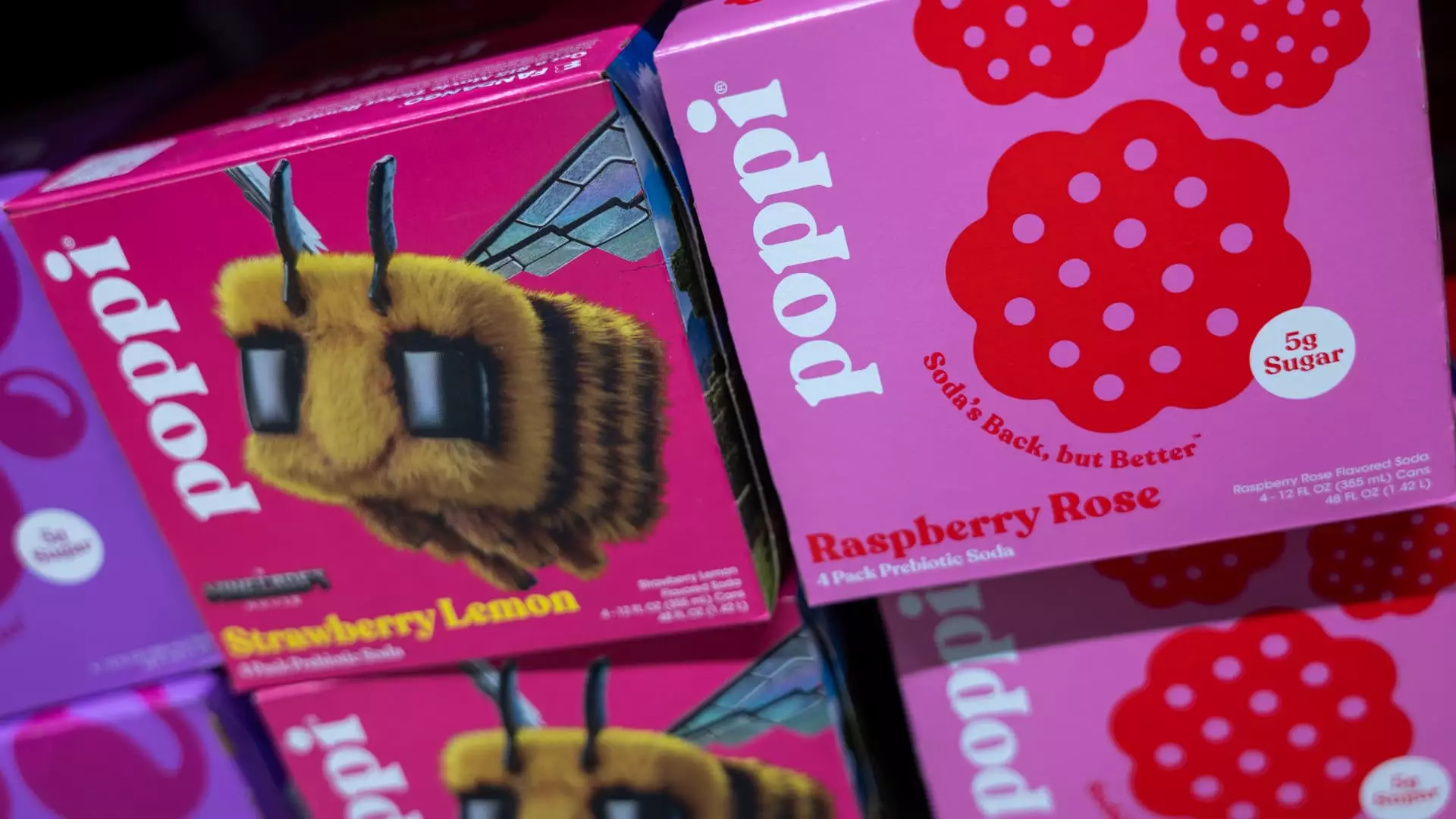PepsiCo’s recent announcement to acquire Poppi, a prebiotic soda brand, for nearly $2 billion represents a significant turning point in the beverage industry. While traditional soda consumption in the United States has seen a steady decline over the last two decades, health-focused alternatives are gaining traction. Brands like Poppi and Olipop are not just tapping into a trend; they are leading a revolution in consumer preferences. This isn’t merely business strategy; it’s a necessary pivot for a company that must adapt to shifting market demands to stay relevant.
Restructuring Strategies in a Saturated Market
The decision to purchase Poppi follows PepsiCo’s abandoned plans to develop its own functional soda line under the Soulboost brand—a clear indication that the company recognizes the growing competition in the prebiotic segment. Pepsi’s deal with Poppi showcases a strategic maneuver to acquire established market players rather than maneuvering to create something from scratch in a saturated environment. This shift underscores a critical moment in corporate strategy: instead of reinventing the wheel, it is often more profitable to buy existing innovation.
The Controversies of Health Claims
While the acquisition might seem like a brilliant play, it couldn’t come without its risks. Poppi has faced scrutiny over the health claims associated with its beverages, leading to a class-action lawsuit that alleged the product was misrepresented as healthier than it actually is. Such controversies raise red flags about the integrity of the brand—which, though potentially successful, may also come with a tarnished reputation that can affect PepsiCo’s own image. With consumers increasingly concerned about transparency and health risks, the beverage giant may be taking a gamble with significant implications.
The Bigger Picture: Market Dynamics and Future Competition
Pepsi’s entrance into the prebiotic space indicates a recognition of a fertile market. The fact that rival Coca-Cola is also seeking to tap into this lucrative segment with its Simply Pop brand shows a competitive landscape brimming with innovation. Olipop, another key player, has been valued at $1.85 billion and is eagerly attracting attention from major corporations eyeing acquisition. This competitive pressure will push Pepsi and other companies to continually innovate, respond to market demands, and maintain consumer trust—a challenging endeavor in today’s fast-evolving marketplace.
Measuring Success: Revenue and Performance Milestones
Pepsi’s acquisition includes provisions for additional payments contingent on Poppi’s performance, highlighting the company’s high stakes in ensuring that their investment yields substantial returns. While Poppi has recently reported annual sales exceeding $100 million, it’s vital for PepsiCo to closely monitor its revenue trajectory and the effectiveness of marketing campaigns. The stakes are especially high, given the persistent scrutiny on health claims and the increasing pressure for transparency in consumer goods, which could directly affect Poppi’s market performance and by extension, Pepsi’s financial landscape.
While PepsiCo’s move to purchase Poppi could herald a new era of beverage options that cater to the health-conscious consumer, it’s fraught with challenges. The success of this acquisition is contingent on several factors, from maintaining brand integrity to navigating the competitive landscape and addressing health-related criticisms effectively. In a market that is finally waking up to the demands of a health-savvy populace, Pepsi’s strategy may revolutionize its approach—or ultimately expose deeper vulnerabilities.

